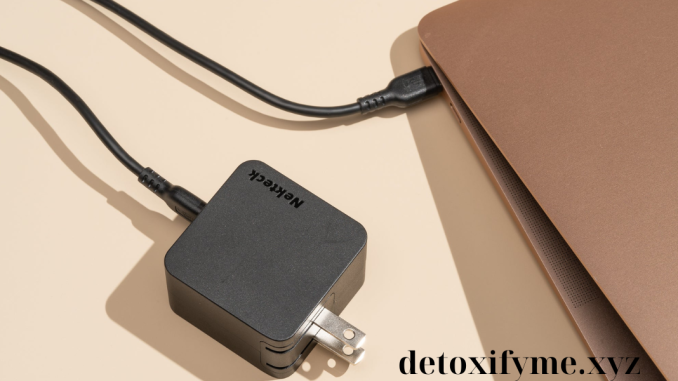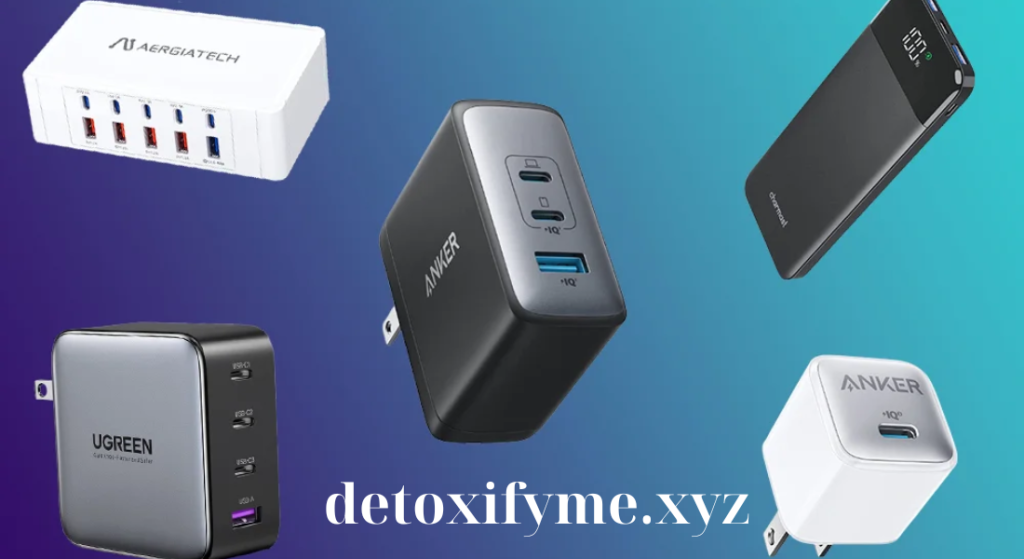
The Ultimate Guide to Choosing the Best USB-C Charger for Fast Charging & Compatibility
In today’s fast-paced world, staying connected is essential, and a reliable USB-C charger can make all the difference. Whether you’re charging your smartphone, tablet, or laptop, a quality USB-C charger can ensure fast, efficient charging that keeps you powered up and ready to go. In this guide, we’ll dive into everything you need to know about USB-C chargers, including their benefits, compatibility, charging speeds, and essential tips for picking the right charger.
Why Choose a USB-C Charger?
USB-C chargers have quickly become the standard for most modern devices, including smartphones, laptops, tablets, and other electronics. Their universal design and powerful charging capabilities have revolutionized how we power our devices. Here are some key reasons to consider a USB-C charger for all your charging needs:
- Fast Charging Capabilities: USB-C chargers support fast-charging protocols, allowing compatible devices to recharge up to 70% faster than traditional chargers.
- Versatility Across Devices: USB-C ports are increasingly universal, working seamlessly with many brands and device types, making it a practical choice for multi-device users.
- Compact and Convenient: Most USB-C chargers are small and portable, making them ideal for travel or commuting.
Understanding USB-C Charger Specifications
Before you buy a USB-C charger, it’s crucial to understand the key specifications that impact its performance. Here are some factors you should keep in mind:
1. Power Output (Wattage)
The power output of a USB-C charger determines how fast it can charge your devices. Common wattages include 18W, 30W, 45W, 60W, and 100W, each suited to different devices:
- 18W to 30W: Suitable for smartphones and smaller tablets.
- 45W to 60W: Ideal for larger tablets, some Chromebooks, and smaller laptops.
- 100W and above: Perfect for high-powered devices, such as gaming laptops or high-performance tablets.
2. USB Power Delivery (USB-PD)
USB Power Delivery (USB-PD) is a fast-charging protocol designed for USB-C chargers. With USB-PD, chargers and devices communicate to deliver optimal charging speeds. Look for a charger that supports USB-PD for the fastest and safest charging experience.
3. Quick Charge (QC) Compatibility
Quick Charge (QC) is another technology often found in USB-C chargers, particularly useful for Android devices. A QC-compatible USB-C charger can significantly reduce charging time for compatible devices.
4. Cable Quality
Not all USB-C cables support high-speed charging, so it’s essential to use a high-quality, certified USB-C cable with your charger. A substandard cable can limit charging speed and, in some cases, damage your device.

Choosing the Right USB-C Charger for Your Needs
With many options on the market, choosing the best USB-C charger can feel overwhelming. Here’s a breakdown of top considerations to help you make an informed decision:
A. Identify Your Charging Needs
Start by identifying the devices you plan to charge. Smartphones, for instance, don’t require as much power as laptops. A high-wattage charger may be unnecessary for small devices, while a low-wattage charger may not efficiently power a laptop.
B. Consider Portability and Size
If you’re frequently on the go, a compact USB-C charger can save space and reduce the weight of your travel gear. Look for a portable model that doesn’t sacrifice power output, such as GaN (Gallium Nitride) chargers, which are more compact and energy-efficient than traditional chargers.
C. Multi-Port vs. Single-Port Chargers
Some USB-C chargers come with multiple ports, allowing you to charge multiple devices simultaneously. If you have several devices to charge, a multi-port USB-C charger can save time and reduce the need for multiple outlets.
D. Safety and Certification
When it comes to charging expensive devices, safety should be a priority. Always choose a USB-C charger from a reputable brand with certifications like UL or FCC, which indicate compliance with safety standards.
How to Maximize Charging Efficiency with Your USB-C Charger
To make the most of your USB-C charger, keep these tips in mind:
- Use the Right Cable: Always use a high-quality USB-C cable to ensure compatibility and optimal charging speed.
- Avoid Overheating: Try to keep your charger and device in a well-ventilated area while charging. Overheating can slow down charging speeds and shorten the lifespan of both the charger and your device.
- Unplug After Full Charge: Leaving devices plugged in for extended periods can reduce battery health over time. Once fully charged, unplug your device.
Top USB-C Chargers on the Market
To make your search easier, here’s a look at some of the best USB-C chargers currently available:
- Anker PowerPort Atom III – A compact, high-speed charger with USB-C PD support, ideal for phones, tablets, and laptops.
- Apple 20W USB-C Power Adapter – Optimized for Apple devices but compatible with many others, this charger offers reliable performance.
- RAVPower 65W USB-C Charger – A multi-port charger perfect for users who need to power multiple devices at once.
- Samsung 45W USB-C Fast Charging Wall Charger – An excellent choice for Samsung Galaxy users with fast-charging needs.
Benefits of USB-C Chargers for Everyday Life
In addition to speed and convenience, USB-C chargers offer several practical benefits for everyday use. Here’s why switching to USB-C can simplify your tech routine:
- One Charger for All Devices: With USB-C becoming the standard across many devices, you can use a single charger for your phone, tablet, and laptop, eliminating the need for multiple adapters.
- Faster Charging, Less Waiting: With fast-charging support, USB-C chargers help reduce downtime, allowing you to quickly power up and get back to what you need to do.
- Eco-Friendly: Many manufacturers are moving toward USB-C charging to reduce electronic waste, as you’ll need fewer chargers over time.
Frequently Asked Questions About USB-C Chargers
1. Can I use a high-wattage USB-C charger with my smartphone?
Yes, most modern devices are designed to manage power input and will only draw what they need. A high-wattage charger can be safe for your phone, as long as it’s from a reliable brand.
2. Will a USB-C charger work with my older devices?
Some USB-C chargers come with adapters or additional cables for backward compatibility with older USB-A ports. However, charging speeds may be slower.
3. What’s the difference between USB-C and USB-PD?
USB-C refers to the port and connector type, while USB-PD (Power Delivery) is a fast-charging protocol that enhances charging speeds through USB-C chargers.
Conclusion: Finding the Perfect USB-C Charger for You
Choosing the right USB-C charger can significantly impact your device experience, offering convenience, speed, and versatility. By considering your specific needs, such as device type, charging speed, portability, and safety, you can find a charger that keeps your devices powered up effectively and efficiently.
Investing in a high-quality USB-C charger is a decision that pays off in the long run, enhancing the performance and lifespan of your devices while offering the flexibility of universal compatibility. Whether you’re looking to streamline your tech gear or simply want a faster charge, the right can make all the difference.
Leave a Reply